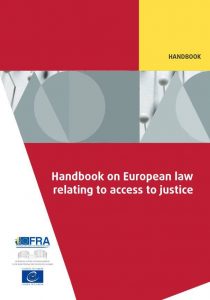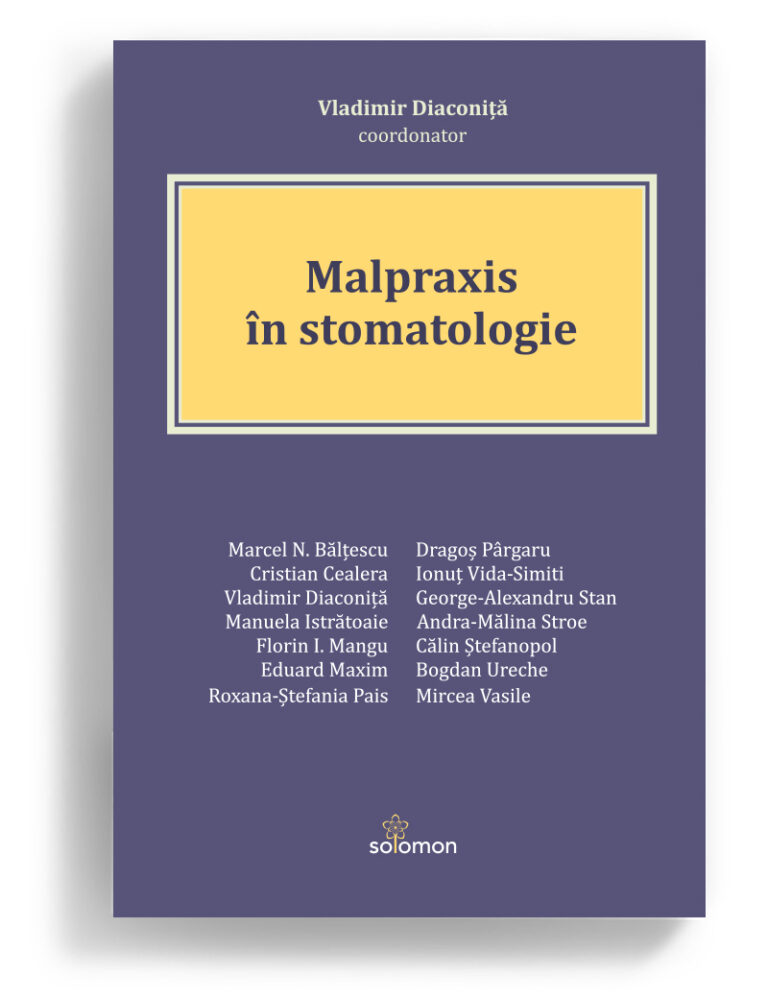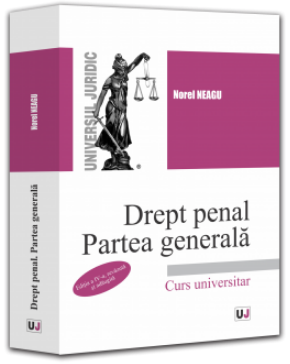
Handbook on European law relating to access to justice
 Foreword: ”This handbook on access to justice in Europe is jointly prepared by the European Union Agency for Fundamental Rights (FRA) and the Council of Europe together with the Registry of the European Court of Human Rights. It is the fifth in a series of handbooks on European law jointly prepared by our organisations. Previous handbooks focused on European non-discrimination law, European law relating to asylum, borders and immigration, European data protection law, and European law relating to the rights of the child. Given the positive feedback to previous handbooks, we decided to cooperate on another highly topical subject – access to justice. Access to justice is not just a right in itself but also an enabling and empowering tool central to making other rights a reality. This handbook summarises the key European legal principles in the area of access to justice. It seeks to raise awareness and improve knowledge of relevant legal standards set by the European Union and the Council of Europe, particularly through the case law of the Court of Justice of the European Union (CJEU) and the European Court of Human Rights (ECtHR). The handbook is designed to serve as a practical guide for judges, prosecutors and legal practitioners involved in litigation in the EU and in Council of Europe member states. Non-governmental organisations and other bodies that assist victims in accessing justice will also find this handbook useful. We would like to thank the Human Rights Law Centre of the University of Nottingham, UK, for its contribution. We are also grateful to the European Commission for the Efficiency of Justice of the Council of Europe (CEPEJ) for its involvement in the early stages of preparing this handbook and to the European Commission’s DG Justice for providing input during drafting. Finally, we would like to express our gratitude to Judge Maria Berger of the Court of Justice of the European Union for her valuable feedback during the final drafting phase.”
Foreword: ”This handbook on access to justice in Europe is jointly prepared by the European Union Agency for Fundamental Rights (FRA) and the Council of Europe together with the Registry of the European Court of Human Rights. It is the fifth in a series of handbooks on European law jointly prepared by our organisations. Previous handbooks focused on European non-discrimination law, European law relating to asylum, borders and immigration, European data protection law, and European law relating to the rights of the child. Given the positive feedback to previous handbooks, we decided to cooperate on another highly topical subject – access to justice. Access to justice is not just a right in itself but also an enabling and empowering tool central to making other rights a reality. This handbook summarises the key European legal principles in the area of access to justice. It seeks to raise awareness and improve knowledge of relevant legal standards set by the European Union and the Council of Europe, particularly through the case law of the Court of Justice of the European Union (CJEU) and the European Court of Human Rights (ECtHR). The handbook is designed to serve as a practical guide for judges, prosecutors and legal practitioners involved in litigation in the EU and in Council of Europe member states. Non-governmental organisations and other bodies that assist victims in accessing justice will also find this handbook useful. We would like to thank the Human Rights Law Centre of the University of Nottingham, UK, for its contribution. We are also grateful to the European Commission for the Efficiency of Justice of the Council of Europe (CEPEJ) for its involvement in the early stages of preparing this handbook and to the European Commission’s DG Justice for providing input during drafting. Finally, we would like to express our gratitude to Judge Maria Berger of the Court of Justice of the European Union for her valuable feedback during the final drafting phase.”

